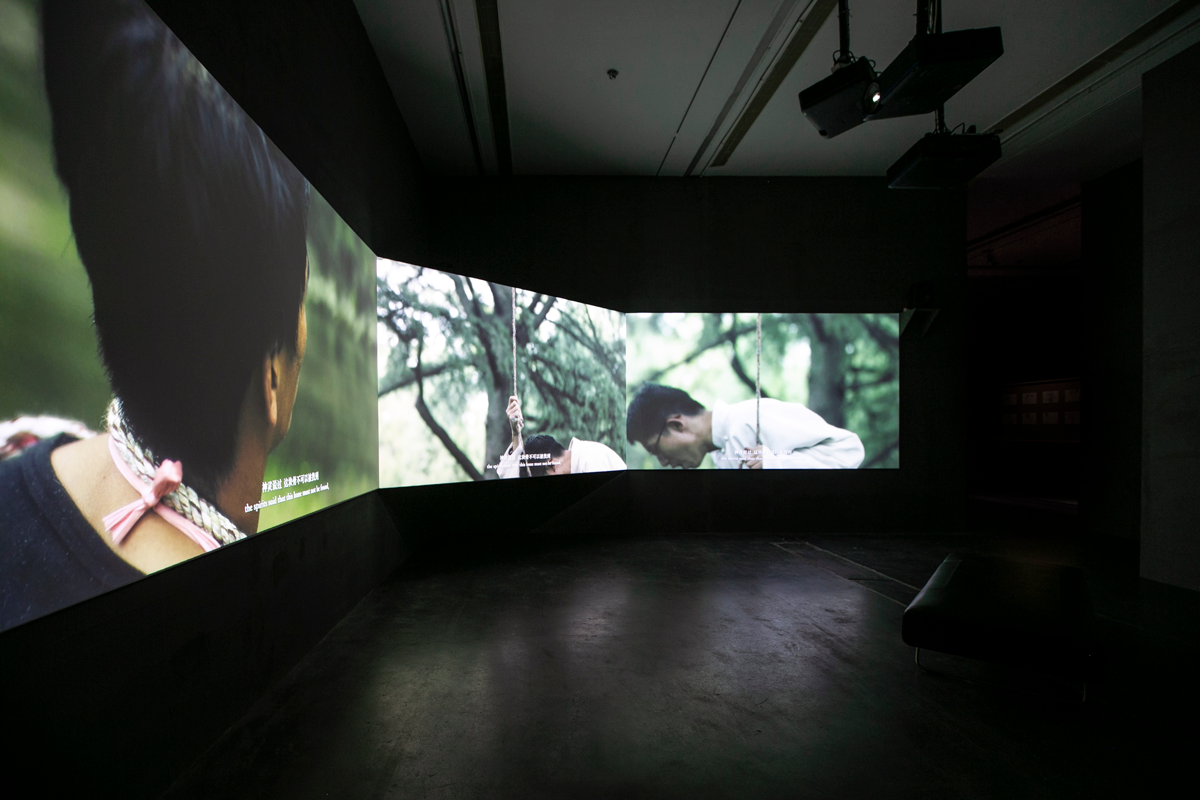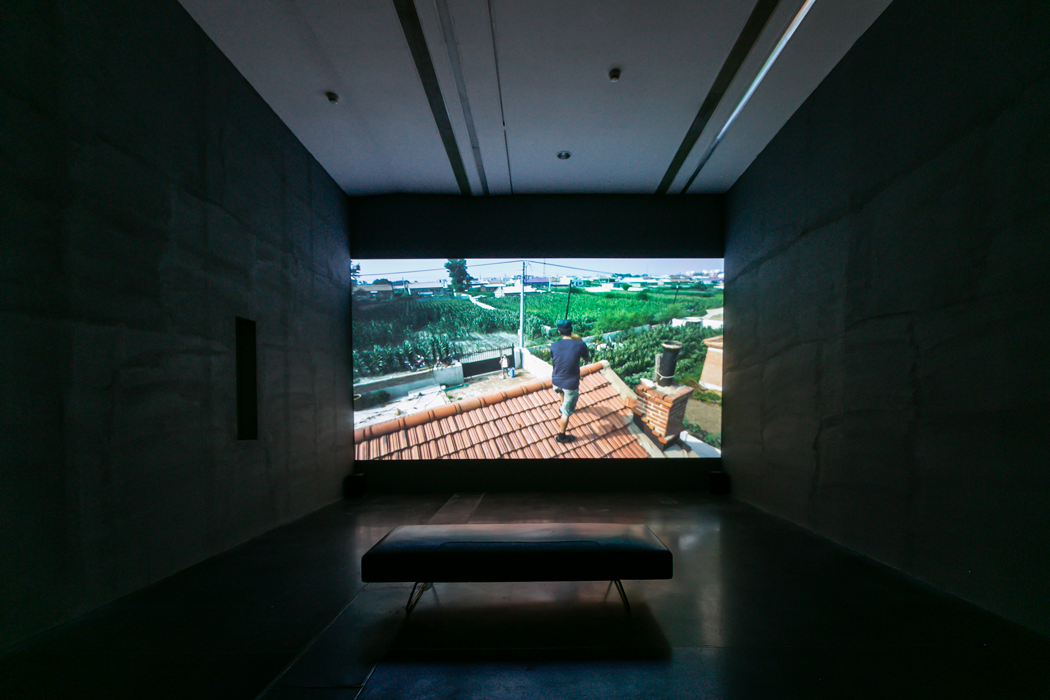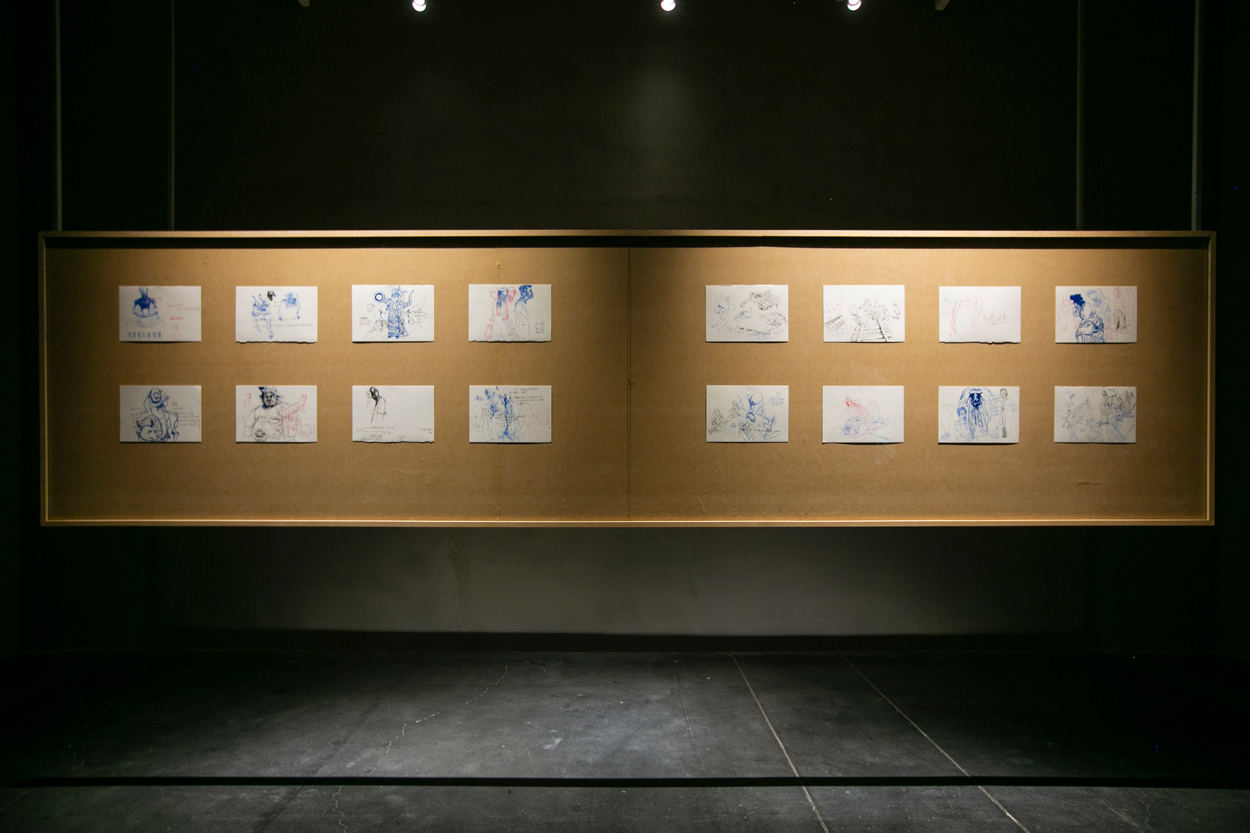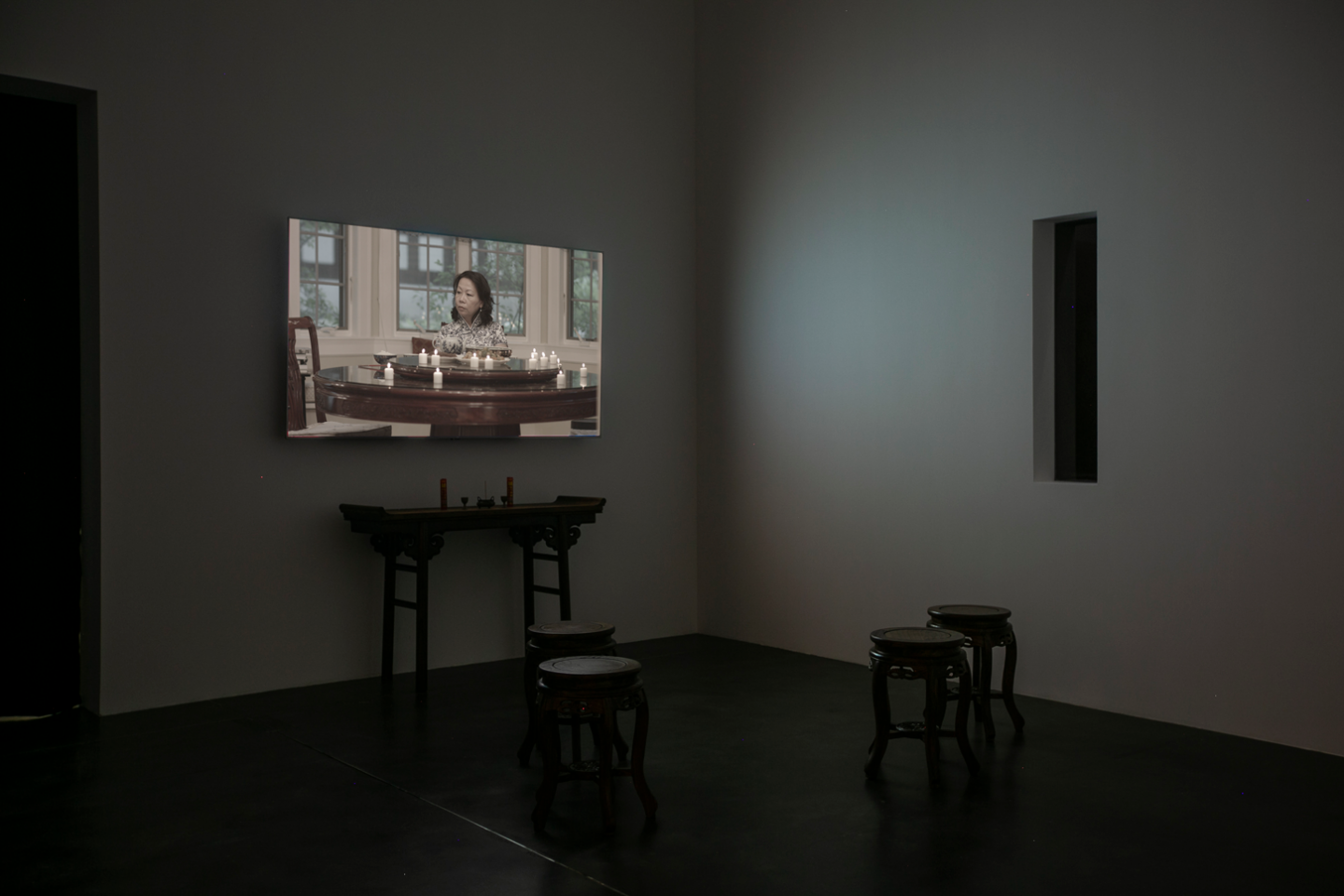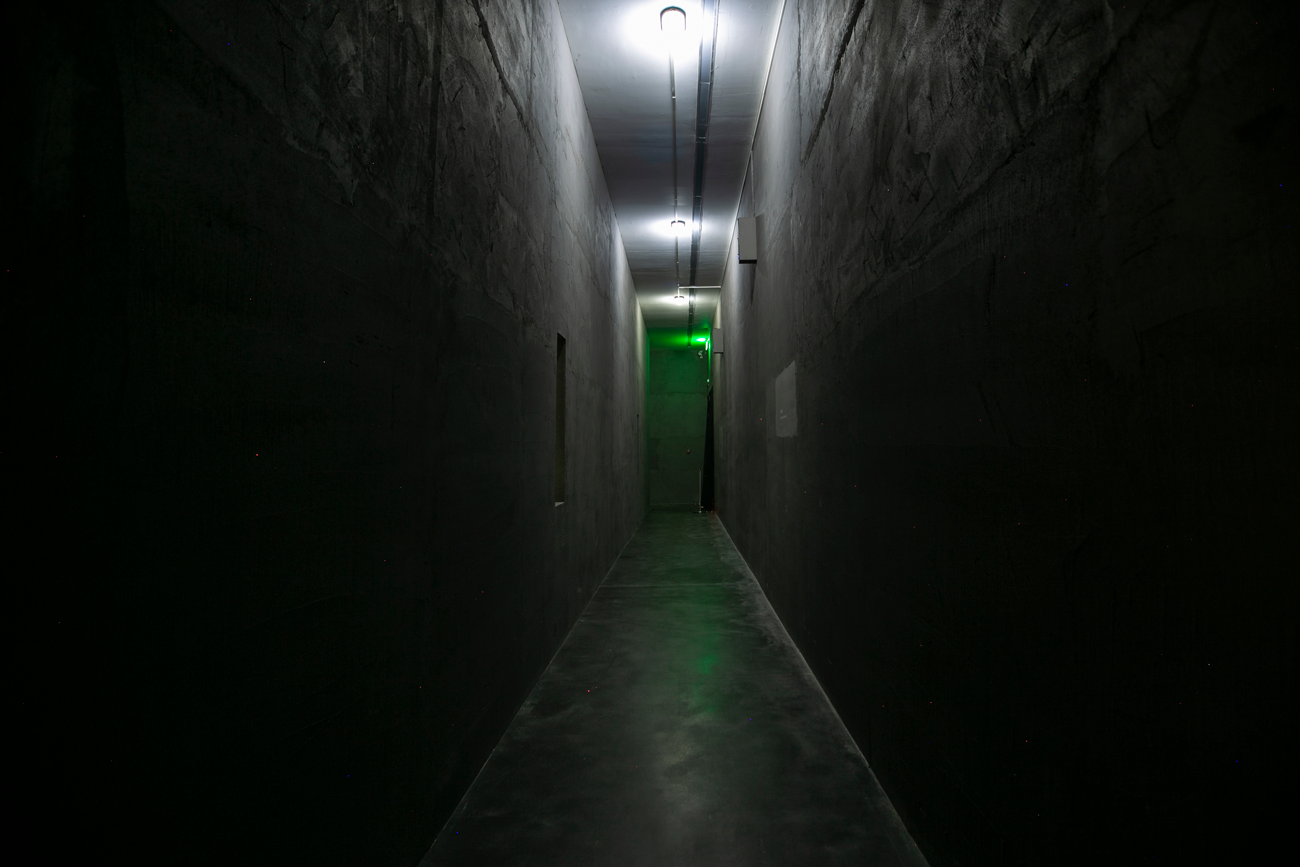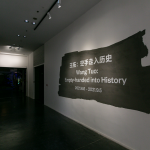
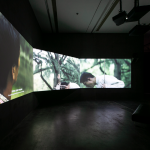
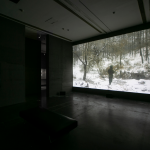
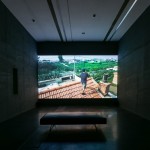
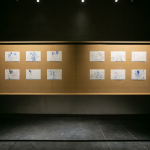
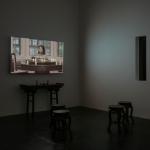
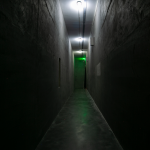
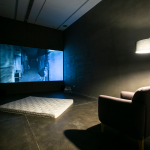

Wang Tuo’s first institutional solo exhibition collects eight of the artist’s early-career video works and presents for the first time in its complete form the focus of the artist’s work for the past four years: “The Northeast Tetralogy.”
BEIJING, China — From June 6, 2021 to September 5, 2021, UCCA Center for Contemporary Art presents “Wang Tuo: Empty-handed into History.” As Wang Tuo’s (b. 1984, Changchun) first institutional solo show, this exhibition collects eight of the artist’s single- and multi-channel video works, including, in its complete form for the first time, “The Northeast Tetralogy,” as well as related archival materials and sketches from the artist, presenting an overview of the artist’s early-career works. The exhibition’s title alludes to a view of history described by Japanese historian Yuzo Mizoguchi, in which one “enters history in a state of unconsciousness” and thereby discovers its original form. This notion outlines the core of Wang’s creative methodology, as well as the critical role the artist has played in processes of deconstructing the past and imagining alternative, speculative histories. “Wang Tuo: Empty-handed into History” is curated by UCCA Curator Luan Shixuan and organized by Wang Ziwei and Shi Yao. The exhibition space is designed by Anna Yang.
The reappropriation and analysis of historical texts have long been the cornerstone of Wang’s artistic practice, which places in an unspecified present pre-conditioned events that are based on the past, thereby gesturing towards the future through these hybrid, multi-dimensional narratives, guiding the viewer along both conspicuous and hidden clues to reach for truths behind historical events and their underlying historical and cultural forces. A long-term series that began in 2018 and completed in 2021, “The Northeast Tetralogy” is an important milestone in Wang’s early career, comprised of four video works: Smoke and Fire (2018), Distorting Words (2019), Tungus (2021), and Wailing Requiem (2021). The works look to China’s Northeast (Dongbei) region and a series of widely known incidents of violence in Chinese society in recent years, beginning with the May 4th Movement and continuing on to historical moments in recent Chinese history and in greater Northeast Asia, including the Chinese Civil War, the Jeju Uprising, and the contemporary plight of migrant workers. From the New Democracy movement
in the first half of the twentieth century, to current events, to an imagined near future, major incidents from different eras, ancient supernatural tales, and fragments of history from both its grand narratives and obscured corners are interspersed among one another in a new narrative text that blurs the confines of time and space. In reconstructing and rearranging historical texts and connecting archetypal narratives and characters from different eras, Wang presents a visual narrative matrix with pieces that appear to exist independently yet echo each other in context. In “The Northeast Tetralogy,” Wang’s interpretation and analysis of different key moments from the Northeast’s journey towards modernity open up new ways of thinking about a number of questions in China’s recent history. In the same series, Wang also proposes the concept of “pan-shamanization,” based on the artist’s in-depth study of shamanistic rituals and the potentiality of bodies, by entering into an unconscious state, to become a medium of historical reincarnation during tumultuous times of societal changes.
Four additional works in the exhibition follow the diversity of other recent threads in Wang’s artistic vision and interests: Symptomatic Silence of Complicit Forgetting (2019), Meditation on Disappointing Reading (2016), Obsessions (2019), and Roleplay (2016). Departing from the regional in “The Northeast Tetralogy,” the artist explores in these four works in various ways subjects such as architecture, psychoanalysis, social constructs, and the scars of history. The fictional memories of a single individual provide the core text of Symptomatic Silence of Complicit Forgetting, which, in the contradictions between historical trauma and real life, condense together the collective memories of an entire generation. Meditation on Disappointing Reading retells a story found in Pearl S. Buck’s banned-in-China
1969 novel Three Daughters of Madame Liang, as a metaphor for histories of migration and the challenges faced by immigrants in estranged cultural contexts. Obsessions grew out of Wang’s interest in a missing person case and the details of the incident that sparked his inquiry into human desire, obsessions, architectural structures, and psychoanalysis. Lastly, Roleplay is a performance-based short film that delves into how constructed concepts seeps into the collective unconscious and become activated through the use of language. The sense of detachment heightened by the two reenactments in two spaces emphasizes the unsteady relationship between assumed social concepts and reality.

